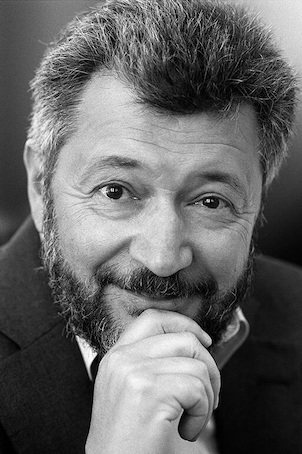Zelmanov's honorary doctorate
Vrije Universiteit Brussel
A mathematical seminar
Efim Zelmanov is a Russian-American mathematician known for his work on combinatorial problems in algebra and group theory, including his solution to the Burnside problem. He was awarded a Fields Medal at the International Congress of Mathematicians in Zürich in 1994.

The day after the ceremony celebrating Zelmanov’s honorary doctorate at VUB, we will have a mathematical seminar. Apart from Zelmanov’s talk, three other speakers will discuss different aspects of Efim’s work.
When?
June 2, 2023
Where?
Vrije Universiteit Brussel
Pleinlaan 2, B-1050
Brussel, Belgium
Room G.1.52
Schedule
| Time | Speaker |
|---|---|
| 10:00-11:00 | Efim Zelmanov |
| Coffee break | |
| 11:30-12:30 | Agata Smoktunowicz |
| Lunch | |
| 14:00-15:00 | Bettina Eick |
| Coffee break | |
| 15:30-16:30 | Eric Jespers |
Abstracts
Eric Jespers
The structure algebra of a set-theoretic solution of the Yang-Baxter equation
The structure algebra over a field K associated to a map r:X×X→X×X is the K-algebra A(X,r) with generators X and relations xy=uv whenever r(x,y)=(u,v). So it has a presentation defined by quadratic word relations and thus it is the monoid algebra of the structure monoid M(X,r), i.e. the monoid generated by the set X and subject to the same word relations. This algebra is the associative ring theoretic tool to investigate the map r and has attracted a lot of attention in case r satisfies the braided relation, i.e. (X,r) is a set-theoretic solution of the Yang-Baxter equation. Fundamental results have been proven for algebras of such solutions. For example, if X is finite and r is bijective and non-degenerate, then the algebra satisfies a polynomial identity and is left and right Noetherian and has finite Gelfand-Kirillov dimension. If, furthermore, r is involutive then these algebras share many properties with polynomial algebras in commuting variables. The aim of this lecture is to explain the intriguing relationship between the algebraic structure of the structure algebras A(X,r) and the finite left non-degenerate set-theoretic solutions (X,r) of the Yang-Baxter equation. The main focus is on when such algebras are Noetherian, prime, semiprime, representable and the Gelfand-Kirillov dimension.
Efim Zelmanov
Automorphisms and derivations of affine commutative algebras
Let A be an affine commutative algebra. The group of automorphisms Aut(A) is, generally speaking, not linear and the Lie algebra Der(A) of all derivations of A may be infinite dimensional. The talk will focus on the question: which properties of linear groups extend to Aut(A) and which properties of finite dimensional Lie algebras extend to Der(A)?
Agata Smoktunowicz
Some open questions and results on nil and nilpotent rings
In this talk I will mention some important results by the Fields medallist Efim Zelmanov, related to various types of nil rings: Lie rings, pre-Lie rings and noncommutative associative rings. Recall that a ring is nil if each element of this ring to some power is zero. Various types of nilpotency of rings will also be mentioned. We will also look at some connections between nil and nilpotent rings and other research areas such as group theory, deformation theory, algebraic geometry and theory of braces and the Yang-Baxter equation, and show how some classical results can be applied in these research areas.
Bettina Eick
Finite p-groups: History, Computations and Classifications
The classification of finite groups of prime-power order (finite p-groups) is a deep and interesting research area in algebra. This talk describes different approaches towards this aim, their historic roots, some highlight results and it also exhibits interesting open problems in the area.